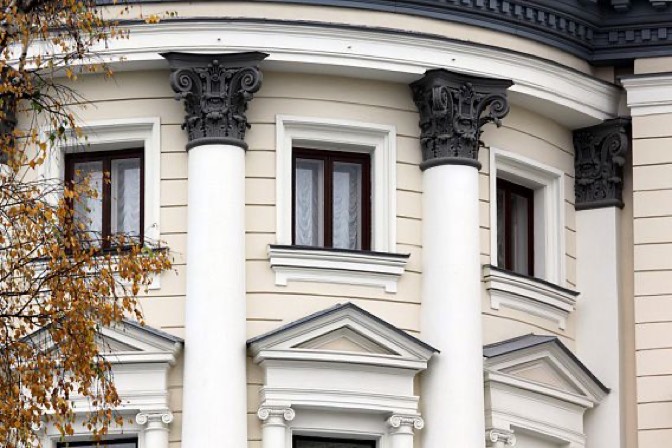Princess Dashkova's house
Princess Ekaterina Romanovna Dashkova, née Vorontsova, led an active political life at one time and even took part in the palace coup of 1762. In her youth, she received a standard noble education: foreign languages, singing and dancing, but had an irresistible craving for reading. After several years abroad, Catherine popularized the Russian language in every possible way, and the Empress appointed her director of the St. Petersburg Academy of Sciences.
After the change of power, Dashkova returned to Moscow, to her old house on Bolshaya Nikitskaya Street. To this day, only scraps of information about this house have survived. It is known that it was built in the 1770-1780s, and it is believed that the architect was VI Bazhenov. Ekaterina Romanovna died in 1810. In 1871, the building was rented and then bought by the conservatory. In 1894, Dashkova's house was thoroughly destroyed and rebuilt, only a small part of it has been preserved — the front wall, the elegant two-story semicircle of the main entrance of the Moscow Conservatory to the Great Hall.
Address
st. Bolshaya Nikitskaya, 13
Address
st. Bolshaya Nikitskaya, 13
Address
st. Bolshaya Nikitskaya, 13
Website
Princess Dashkova's house
Website
Princess Dashkova's house
Website
Princess Dashkova's house
Source
https://kudago.com/msk/place/dom-e-r-dashkovoj/
Source
https://kudago.com/msk/place/dom-e-r-dashkovoj/
Source
https://kudago.com/msk/place/dom-e-r-dashkovoj/


